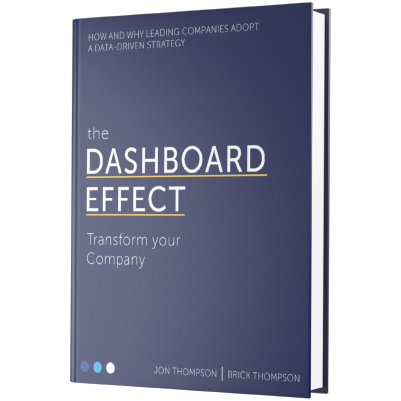Article summary: Learn the data optimization strategies PE firms can use to differentiate themselves through digital transformation...
Record-low interest rates following market volatility at the onset of the COVID-19 pandemic are compelling many investors to allocate capital to alternative asset classes like private equity, digital assets, and venture capital funds. Following the stock market’s meteoric rise since the March of 2020 lows, soaring valuation levels in public equities have become an important concern for capital allocators. Therefore, it’s no surprise that many investors are shifting their interest to alternative investments including private equity funds that focus on areas like leveraged buyout, commercial real estate, and debt strategies.
According to the Deloitte Center for Financial Services, the PE industry continues to be poised for robust demand from institutional investors as an important source of diversification. Global PE assets under management (AUM) are expected to reach $5.8 trillion by 2025, marking an increase of over 28% from 2019 when AUM was US$4.5 trillion.
A recent survey by McKinsey suggests that fund manager and institutional investor appetite for PE investment is rising quickly. As investment demand for private equity remains buoyant, tech-focused deals comprise a significant part of that growth. The trend is likely to continue as digitalization becomes an integral part of professional and private lives, and as data intelligence and machine learning move to the front of the minds of management teams of traditional companies operating in manufacturing, healthcare, distribution, and commercial services.
The McKinsey survey continues: “Many firms are thinking about how to digitize the investment process—and a handful are moving ahead.” The authors highlight commercial real estate as an example, which works with large amounts of data, and how machine-learning algorithms “have demonstrated the ability to estimate target variables (such as rents) with accuracies that can exceed 90 percent.” Put another way, the higher number of deals spotlights the importance of data for the investment process as well as for enhancing tax reporting, regulatory compliance, and investor communications.
Data Optimization Strategies for PE Firms:
There are some key strategies that PE funds can employ to digitally transform their investment process and their portfolio holdings. The following two provide a foundational place to start, focusing on the relevance of data intelligence and digital transformation at both the fund management and portfolio company levels.
Revise Internal Data Management and Analysis Practices
Although many executives acknowledge how crucial data is for operations, significant cultural change is still necessary in many private equity firms that rely on traditional manual processes or spreadsheets at the fund management level. Fund operations and administration should now be regularly using data to produce reports that can help their team measure the performance of target or portfolio companies. The results could also help them compare exit strategies and visualize portfolio-wide growth opportunities.
Putting data intelligence to work inside of a fund’s daily operations will help deal teams, senior partners, finance and accounting personnel, as well as investor relations teams, focus on doing what they do best, instead of having to navigate and piece together disparate and inconsistent data sources like spreadsheets, CRM information, and fund management software. Even though there are powerful tools that help private equity shops with portfolio management generally, fund operations teams will still typically work with countless other reports, providing a strong use case for an integrated data architecture featuring a data lakehouse.
Digital Transformation and Data Intelligence for Portfolio Companies
The second way that PE funds can optimize performance using digital transformation is by developing a better understanding of how data analytics and business intelligence can improve portfolio acquisition decisions such as vetting bolt-on companies, driving organic revenue growth, and enhancing accountability and a sense of ownership by employees and executives at portfolio companies.
As noted by PwC, “In 2021, 97% of PE investors want to invest in digitization because it makes assets more attractive in exits…” If portfolio companies can become highly data-driven themselves, these holdings can ultimately deliver higher returns to fund investors. Executive leadership at these companies can now leverage data to deploy innumerable initiatives such as cost reductions, increased asset utilization, and predicting customer demand.
These are just a few examples of what is possible for portcos when they can cultivate data as a strategic managed asset. The report adds that “There is a growing narrative that digital and data enabled business models are more sustainable and resilient in a crisis and help companies to outperform their competitors and achieve higher valuations. This is motivating PE investors to push for data and analytics implementations in their portfolio companies. Not investing in data and analytics is no longer an option.”
Private equity managers are increasingly aware of the importance of leaning on data to optimize their operations. Data management can help PE firms fine tune exposure in portfolio construction and investment decisions. Analysis that surfaces the right metrics can also ensure the right level of calibration of non-financial factors such as accountability by portfolio company employees and strategic alignment between boards and executive teams. An approach rooted in the philosophy of digital transformation can also justify transaction multiples that differentiate funds in a highly competitive environment, where excess returns are becoming harder and harder to achieve amidst record-low rates.
Rationalizing Private Equity Through Data
Leading private equity firms are increasingly looking to data as a means of outperforming the market.
Our PE reporting solutions are customized to your value-creation model, making it easy to stay on top of portfolio and fund performance, industry benchmarks, covenants, and every aspect of a PE firm’s operations.
If you’d like to see an example of fund-level analytics at work, check out our Private Equity HQ dashboards or schedule a demo. We’d love to learn more about you and point you in the right direction to put your data to work.
